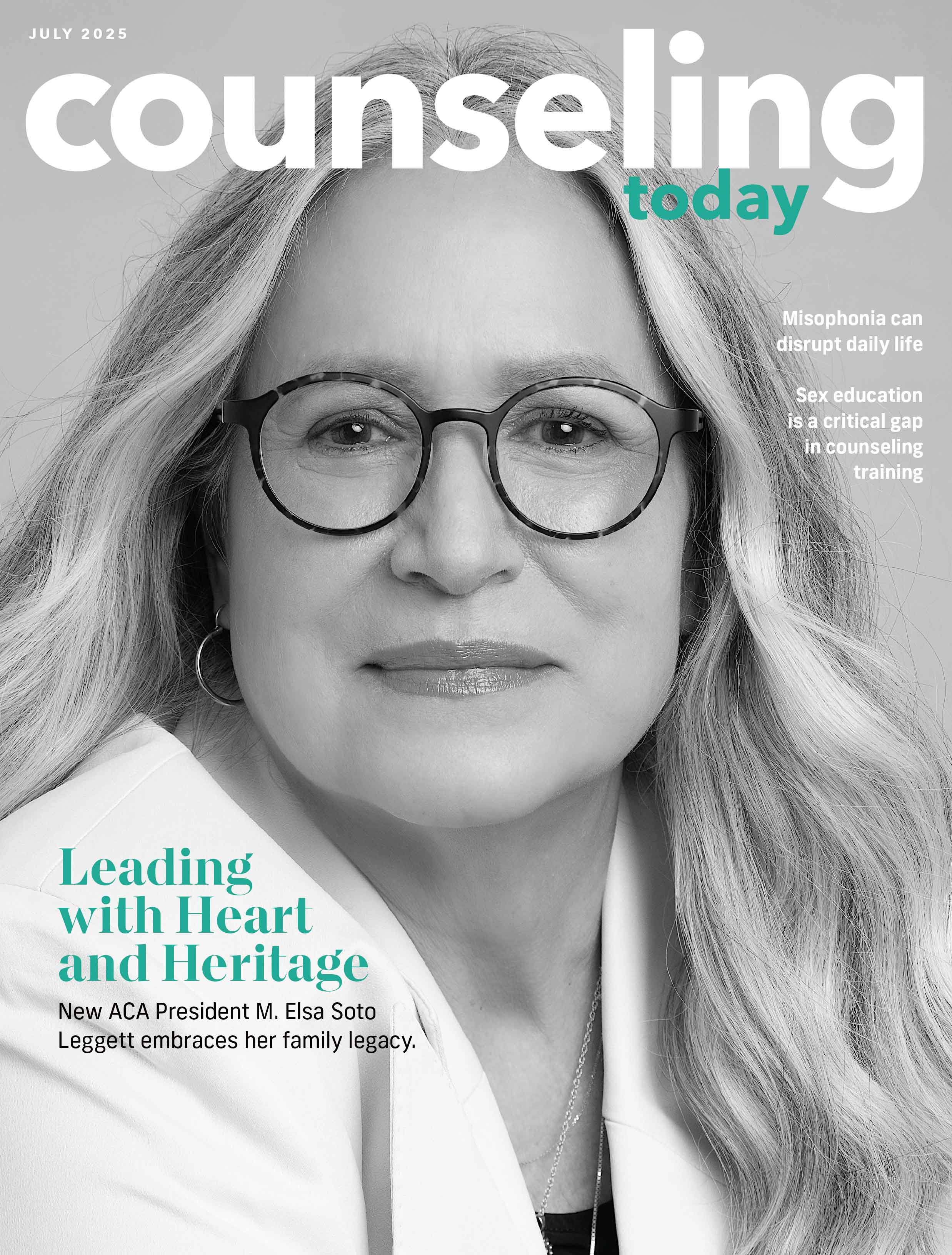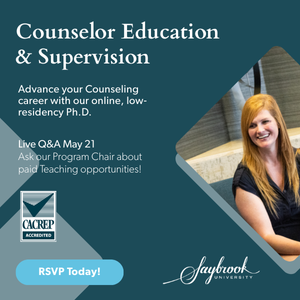Explore Counseling Today Articles
Voice of Experience: The gift of friendship
July has been a hard month. My oldest and closest friend, Eddie, passed away. You didn’t know him, and he wasn’t a mental health professional. Far from it. He was a historian. But you benefited from him indirectly because he served as my editor for most of my professional life.
I met Eddie when I was only 22 years old. He was one of the first people I met when I moved to Georgia from Tennessee with my new bride, ready to begin graduate school. At the time, he was the academic dean at Point University — the university where I currently serve as dean of the College of Social and Behavioral Sciences and have worked as a professor of psychology for close to 40 years. Even though he was 16 years older than me, we immediately became friends.
We shared a love of birds, hiking and the outdoors, but I also valued his impeccable grasp of grammar and his love of scholarly pursuits. One of the first gifts he ever bought for me was a paperback copy of William Strunk and E. B. White’s Elements of Style, a writing style manual. It might seem like an odd gift, but it taught me a lot and showed me how much I still needed to learn about communicating clearly and effectively.
Around this time, Eddie also became my personal editor. He proofread every paper I wrote for graduate school, and I would often ask him to look over important emails as well. He edited every article I wrote for a newspaper column I hosted for 35 years, and he proofread each chapter of the dozen or so books that I’ve written.
I’ve also published several articles in various periodicals, including Counseling Today. And you guessed it: He edited them all. Before my Counseling Today editor ever saw a draft, it ran through Eddie’s editorial eyes. And until this past year, he edited my Voice of Experience column as well.
He provided this service as a friend and colleague, and he never once asked me for a dime. I cannot tell you how much he taught me along the way.
The readers of my column have also benefited because Eddie improved my quality of writing — a skill I often use when I write, speak in public or provide students and colleagues with feedback. I can’t recall how many times I sent him a draft where I thought I had used my words carefully and clearly, but then Eddie would suggest more subtle yet powerful wording or note places that needed to be clarified for readers who were not as well-versed in the subject as me.
My friend supported me in other ways as well. In my 2018 Counseling Today article “The hurting counselor,” I described a dark period in my life and how I was unprepared to handle it because of poor self-care. I didn’t have a counselor at the time — a mistake I admit in the article. The closest thing I had was Eddie. He walked me through those dark days and helped me pull myself up from the ashes. He made meals for me, drove me places, listened to me — for hours. Even though he wasn’t a counselor, he could have been.
But he wasn’t just there for the tough times. We also celebrated our children’s births, weddings and holidays. Eddie was the kind of friend that we all need — someone with whom we can experience and enjoy life.
It’s easy for counselors to get caught up in their work. Early in my career, I spent nearly all my time working. Although I don’t regret that hard work, it was a perfect example of “life imbalance.”
But life must be about more than work. Friends, like Eddie, are hard to come by, and as I matured — both personally and professionally — I realized that. So I started investing more in my relationships. Eddie and I traveled many miles together and had many adventures, hiked many trails and camped in many campgrounds. We had so many inside jokes that we began referring to them by number (e.g., “Funny story #12”). No other words were needed.
Anyone who has experienced grief knows there is a hole in my heart — a chasm that feels impossible to close. But I’m thankful I learned to appreciate my friend.
Friendship is a gift, so we must make time to find and foster it. And in the end, we discover that supportive friendships are what make us become better people, parents and therapists.
Gregory K. Moffatt is a veteran counselor of more than 30 years and the dean of the College of Social and Behavioral Sciences at Point University. His monthly Voice of Experience column for CT Online seeks to share theory, ethics and practice lessons learned from his diverse career, as well as inspiration for today’s counseling professionals, whether they are just starting out or have been practicing for many years. His experience includes three decades of work with children, trauma and abuse, as well as a variety of other experiences, including work with schools, businesses and law enforcement. Contact him at Greg.Moffatt@point.edu.
The views expressed in Counseling Today are those of the authors and contributors and may not reflect the official policies or positions of the editors or the American Counseling Association.
- Relationships
- Special Considerations
Search CT Articles
Filter CT Articles
Current Issue
Sign Up for Updates
Keep up to date on the latest in counseling practice. Sign up to receive email updates from Counseling Today.



